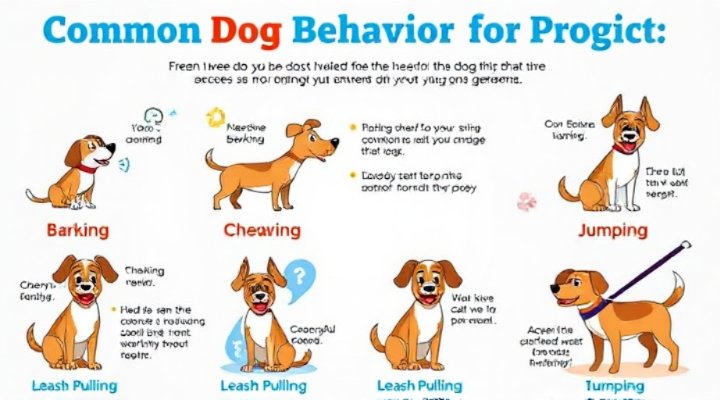Dog behaviorists are the superheroes of the canine world, equipped with the knowledge and skills to decode your dog’s unwanted behaviors and transform them into paw-sitive habits. Whether you’re dealing with a barking Beagle or a jumping Jack Russell, these professionals can help you understand why your dog behaves the way they do and how to make meaningful changes.

What Exactly Do Dog Behaviorists Do?
Dog behaviorists specialize in understanding canine psychology and modifying problematic behaviors. Unlike basic obedience trainers who teach commands like ‘sit’ and ‘stay’, behaviorists dig deeper to address the root causes of issues like aggression, anxiety, or compulsive behaviors. They typically have advanced education in animal behavior and often work with veterinarians to rule out medical causes for behavioral problems.
For instance, when I consulted a behaviorist about my rescue dog’s fear of strangers, she didn’t just give me a quick fix. Instead, she helped me understand my dog’s body language and created a gradual desensitization program that respected his comfort levels while slowly building confidence.
Common Behavior Issues Addressed by Professionals
Dog behaviorists help with a wide range of issues, including:
- Aggression (toward people, other dogs, or animals)
- Separation anxiety and destructive behaviors
- Excessive barking or howling
- Fear and phobias (of noises, objects, or situations)
- Compulsive behaviors like tail chasing or excessive licking

When to Consider Professional Help
While many minor behavior issues can be addressed through positive reinforcement training, you should consult a behaviorist if:
- The behavior poses a safety risk
- Your attempts at training haven’t produced results
- The problem is getting worse over time
- Your dog seems stressed or anxious
The American Veterinary Society of Animal Behavior recommends seeking professional help early for serious behavior issues, as they often become more difficult to modify over time.
The Behavior Modification Process
Professional behaviorists typically follow a structured approach:
- Assessment: Observing your dog’s behavior in various contexts
- Diagnosis: Identifying the root causes of the behavior
- Plan Development: Creating a customized training program
- Implementation: Teaching you how to work with your dog
- Follow-up: Adjusting the plan as needed

Positive Reinforcement: The Gold Standard
Most modern behaviorists use positive reinforcement techniques, rewarding desired behaviors rather than punishing unwanted ones. This approach is not only more humane but also more effective in the long term. For example, instead of scolding a dog for jumping, you would reward them for keeping all four paws on the ground.
If you’re dealing with excessive barking, a behaviorist might help you identify the triggers and teach your dog alternative behaviors to perform instead of barking.
DIY Behavior Modification Tips
While serious issues require professional help, here are some general tips you can try at home:
- Consistency is key: All family members should follow the same rules
- Manage the environment: Prevent rehearsal of bad behaviors
- Exercise and mental stimulation: A tired dog is a well-behaved dog
- Patience: Behavior change takes time

For separation anxiety, which affects about 14% of dogs according to research from the Texas A&M College of Veterinary Medicine, gradual desensitization to departures can be helpful. Start with very short absences and slowly increase the duration as your dog remains calm.
Finding the Right Behaviorist
When searching for a qualified professional, look for:
- Certification from organizations like the International Association of Animal Behavior Consultants
- Experience with your specific issue
- Positive reinforcement methods
- Good communication skills
Remember that effective behavior modification is a partnership between you, your dog, and the professional. Be prepared to follow through with the recommended exercises and be patient with the process.

The Rewards of Behavior Modification
Working with a dog behaviorist can transform your relationship with your pet. Many owners report not just improvements in the targeted behaviors, but also:
- Stronger bond with their dog
- Better understanding of canine communication
- Reduced stress for both pet and owner
- Improved quality of life for the entire family
Whether you’re dealing with minor nuisances or serious challenges, dog behaviorists offer science-based solutions tailored to your pet’s unique personality and needs. With patience and professional guidance, even the most stubborn behavior issues can often be successfully modified.
Related Keywords: canine behavior specialists, professional dog trainers, solving dog aggression, separation anxiety solutions, positive reinforcement training, behavior modification techniques, certified dog behaviorists

